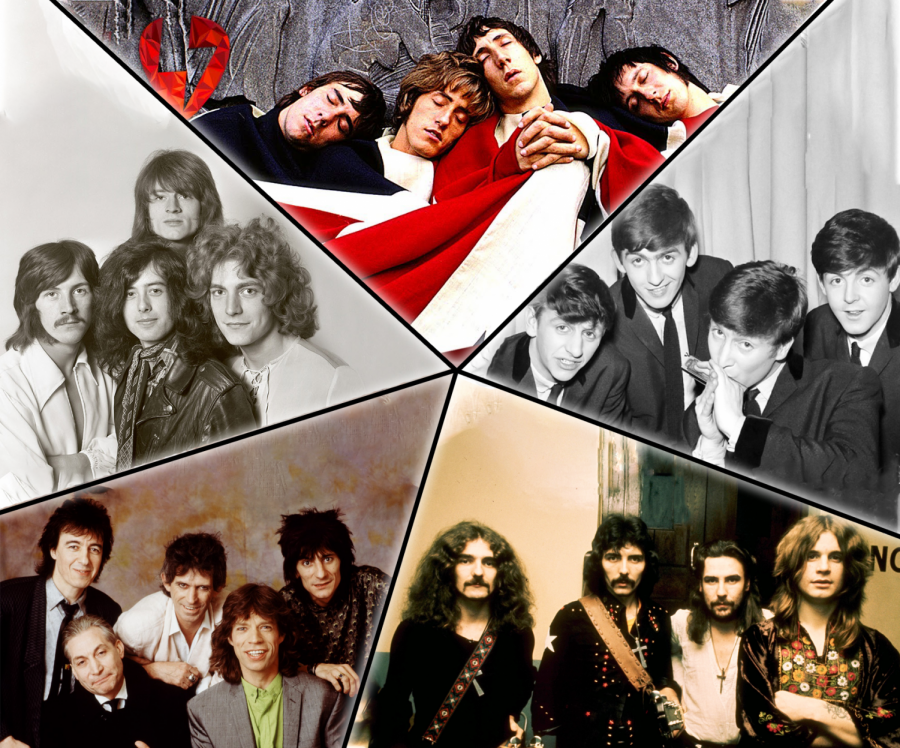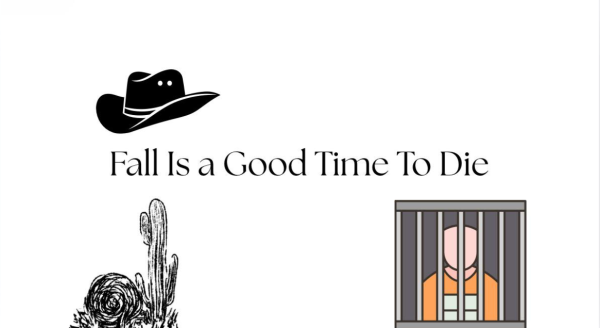Classic rock bands and what made them classic
The bands featured in the article; the Who, the Beatles, Black Sabbath, the Rolling Stones, and Led Zeppelin (clockwise)
The world of classic rock is jaded and colored with great numbers of bands and numerous personalities. Innumerable bands have existed, but very few have received the notoriety as “The Who,” “The Rolling Stones,” “Led Zeppelin,” “Black Sabbath,” and “The Beatles.”
The Rolling Stones have survived the years of declining genres and dying artists, even losing one of their own, Brian Jones, in 1969. Starting out as a band performing hits by Chuck Berry and Bo Diddley, the band quickly formed a following.
The Rolling Stones, or simply “The Stones” brought influences from the R&B from the 50’s, combined it with the counterculture of the time, and created one of the biggest bands in the world.
The Beatles emerged with the Stones, but the mop-topped, sharp dressed gentlemen from Liverpool, had something the Stones did not. The Stones had many problems internally as the band dealt with drug charges and whatnot, while the Beatles primarily dealt with teenage girls in an aura that
The Beatles, using a certain boyish charm and the powerful songwriting duo of “Lennon-McCartney,” rocked the world with hits such as “A Hard Day’s Night,” “Helter Skelter,” and “Strawberry Fields Forever.”
Black Sabbath, popularly considered to be the originators of Heavy Metal, spawned not just acts influenced by them, but an entire genre. Despite personnel changes with drums and the singer, Black Sabbath have truly left their mark on the face of music in general.
The guitarist, Tony Iommi, lost his fingertips as a young man in a machine accident. Using home-built prosthetics and a toned down guitar, Iommi developed the legendary sound that shot Black Sabbath into the charts with hits such as “Black Sabbath,” “NIB,” and “Paranoid.”
Even after the firing of Ozzy in 1979, Black Sabbath worked on with late and great Ronnie James Dio, releasing many notable hits such as “The Mob Rules,” “Turn up the night,” and “Heaven and Hell.”
Led Zeppelin, without a doubt, inspired artists of all types, whether it be a singer, bassist, drummer, or guitarist, someone was always inspired by them. Drummer John Bonham shocked the world and even his own producers with his destructive drumming style.
Bonham used the largest drumsticks available and nicknamed them his “trees.” He played the drums as hard as he could, resulting in a hard hitting sound that many likened to thunder.
The Who, sometimes called the world’s loudest band, shocked the world with the raw energy and sound they produced. Founded in Britain, the band had an unusual following compared to the rest of the bands mentioned. The mod subculture at the time had an enormous effect on the styles and sounds of The Who.
Roger Daltrey’s powerful voice, combined with Pete Townsend’s power chords, mixed with John Entwistle’s fast bass lines, and then added with Keith Moon’s explosive drumming style brought The Who to worldwide fame with hits such as “My Generation,” “Won’t get fooled again,” and “Eminence Front.”
Possibly the most notable part of The Who’s sound could be attributed to bassist John Entwistle. Entwistle was the only member of the band who had formal music training. Starting off playing horns and the piano, Entwistle strengthened his fingers.
His style was notably fast and powerful, using more emphasis on the Treble (High) range of his amplifier, and the speed and powerfulness of his fingers, Entwistle created a twangy, earth-shattering sound that was never replicated by anyone.
These bands have truly shaped numerous artists of all genres, helped form a culture, and then created numerous stories revolving around what happened when Led Zeppelin was playing.
Your donation will support the student journalists of Cape Coral High School. Your contribution will allow us to purchase equipment and cover our annual website hosting costs.









